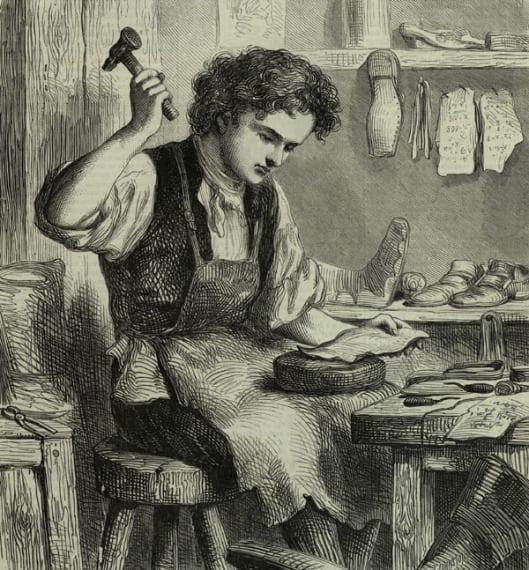The early days of education in Westerville
In the early days of education in the Westerville area, not all young people went to school. If their families needed their help on the farm, they spent their days milking cows, gathering eggs, pulling weeds, planting seeds, and, in the fall, helping harvest the crops. Some attended school only in the winter for several months to learn how to read and write when their hard-working families could spare them. Some never went to school.
At a time when the schools educated only through the 8th grade and there were no high schools and very few colleges, some families chose to apprentice their children. An apprenticeship was a contract signed between the young person, the parent and another local person who was given the responsibility to give them instruction on how to do a job like being a blacksmith or a farmer. The young apprentices left their family and went to live with the person who would train them.
In 1841, fifteen-year-old William Somers was sent to live with George Osborn to learn how to farm. William’s father signed a contract that required him to live on the Osborn farm for six years and to serve George Osborn “to the best of his abilities, to obey him, and to be honest.” George Osborn agreed to instruct the young man how to farm and to provide him with a place to stay, food, clothing and care if he became sick. Osborn was also responsible for teaching William to read and write and to do arithmetic up to multiplying by three. Once William turned 21, he would be given a new Bible, two suits of everyday clothing, one nice suit of clothing and one hundred dollars. There were many contracts like this one signed right here in the Westerville area. Young women could be apprenticed also, and, in 1841, fourteen-year-old Elizabeth Brakebill, an orphan, entered into an apprentice contract with Thomas Bell to learn “the trade and occupation of housewifery.” At age 18, her apprenticeship would end. At that time Thomas Bell was required to provide her with a new Bible, two sets of clothing and one bed.
The archives at the library do not tell us what happened to these young people after they became adults and their apprenticeships ended.
Do you think you would have liked being an apprentice in 1841? Why or why not?
What job do you think it would be fun to learn as an apprentice?
Last updated: 2/15/2018





